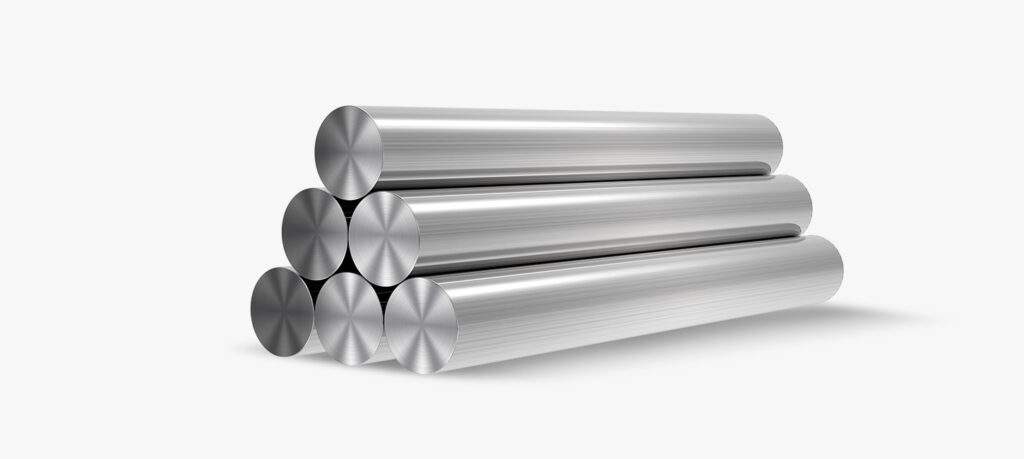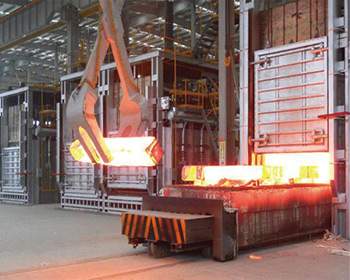
Metal Round Bar: What You Need to Know
Introduction
Metal round bars are the unsung heroes of modern industry, providing the foundational strength for countless applications. These cylindrical workhorses are essential in various sectors, from construction and automotive to aerospace and beyond. In this comprehensive guide, we’ll delve into the world of metal round bars, examining their properties, applications, and how to select the right one for your project. Whether you’re an engineer, a machinist, or a hobbyist, understanding metal round bars is crucial to your work.
Understanding Metal Round Bars

What is a Metal Round Bar?
A metal round bar is a solid, circular cross-section bar made from various metals or metal alloys. They are one of the most basic forms used in metalworking and are available in a wide range of diameters and lengths. These bars are used for a variety of purposes, from manufacturing to repairs and custom fabrications. Their cylindrical shape allows for uniform distribution of stress, making them ideal for applications requiring high tensile strength.
Key Properties of Metal Round Bars
- Strength and Durability: Metal round bars are known for their strength and durability, which make them ideal for heavy-duty applications.
- Versatility: They can be cut, machined, and formed into various shapes, making them extremely versatile.
- Corrosion Resistance: Depending on the metal type, round bars can offer varying degrees of corrosion resistance, suitable for different environments.
- Thermal Conductivity: Some metal round bars have high thermal conductivity, which is beneficial for applications involving heat transfer.
Types of Metal Round Bars
Common Materials Used for Metal Round Bars
- Steel: Known for its strength and affordability, steel is one of the most common materials used.
- Stainless Steel: Offers better corrosion resistance compared to carbon steel.
- Aluminum: Lightweight and resistant to corrosion, making it ideal for aerospace applications.
- Copper: Known for its excellent thermal and electrical conductivity.
- Titanium: Offers high strength-to-weight ratio and is used in high-performance applications.
Physical Properties to Consider
- Tensile Strength: The ability of the bar to withstand pulling forces without breaking.
- Yield Strength: The point at which the material begins to deform plastically.
- Hardness: Resistance to indentation or scratching.
- Elasticity: The ability of the material to return to its original shape after deformation.
Applications of Metal Round Bars
Industrial Applications
Metal round bars are used extensively in the construction of various industrial machinery and equipment due to their strength and durability. They are often found in the manufacturing of gears, shafts, and other mechanical components that require precise dimensions and high strength.
Automotive Industry
In the automotive industry, metal round bars are used in the manufacturing of car parts such as axles, crankshafts, and connecting rods. These components are critical for the performance and safety of vehicles, and the metal round bars provide the necessary strength and durability.
Aerospace Sector
For aerospace applications, metal round bars are critical in the construction of aircraft components where high strength and low weight are paramount. Materials like titanium and aluminum are commonly used for their strength-to-weight ratios and resistance to fatigue.
Construction and Architecture
In construction, metal round bars are used in reinforcement for concrete structures, as well as in the fabrication of structural beams and columns. They provide the structural integrity needed for buildings to withstand various environmental forces.
Selecting the Right Metal Round Bar
Material Selection
The choice of material will depend on the specific requirements of your project, including factors like strength, weight, and environmental conditions. For instance, stainless steel might be chosen for its corrosion resistance in marine environments, while aluminum could be selected for its lightweight properties in aerospace applications.
Size and Tolerance
Selecting the appropriate size and tolerance is crucial for ensuring that the metal round bar fits within the design specifications and functions as intended. Factors such as the diameter, length, and surface finish must be considered to meet the precision required for your application.
Surface Finish
The surface finish of the metal round bar can affect its performance and appearance, with options ranging from mill finish to polished or coated surfaces. The finish can also influence the bar’s resistance to corrosion and its ability to be welded or painted.
Quality and Standards
Ensure that the metal round bars meet industry standards for quality and are sourced from reputable suppliers to guarantee reliability and consistency. Adherence to standards ensures that the bars will perform as expected in your specific application.
Detailed Comparison of Metal Round Bar Materials

| Material | Tensile Strength | Yield Strength | Hardness | Corrosion Resistance | Common Applications |
|---|---|---|---|---|---|
| Steel | 400-600 MPa | 250-400 MPa | 120-250 | Low | Construction, Automotive |
| Stainless Steel | 200-550 MPa | 100-400 MPa | 130-190 | High | Food Processing, Marine |
| Aluminum | 80-500 MPa | 20-60 MPa | 13-60 | High | Aerospace, Electronics |
| Copper | 200-500 MPa | 50-150 MPa | 30-100 | Low | Electrical Wiring, Plumbing |
| Titanium | 240-685 MPa | 170-685 MPa | 250-400 | Very High | Aerospace, Medical Implants |
Conclusion
Metal round bars are an essential component in a wide array of industries, providing the necessary strength and durability for countless applications. By understanding the different types, properties, and selection criteria, you can ensure that you choose the right metal round bar for your specific needs. As the demand for precision and efficiency grows, the role of metal round bars in modern engineering and construction will continue to be vital.
FAQ
What are the most common metals used for metal round bars?
The most common metals include steel, stainless steel, aluminum, copper, and titanium. Each has its own unique properties and applications. Steel is valued for its strength and affordability, stainless steel for its corrosion resistance, aluminum for its lightweight and corrosion resistance, copper for its conductivity, and titanium for its strength-to-weight ratio and corrosion resistance.
How do I determine the right size of round bar for my project?
Consider the structural requirements, load-bearing needs, and design specifications of your project to determine the appropriate size. Consulting with an engineer or using design software can help in making this determination accurately.
What factors affect the cost of round bars?
Cost is affected by factors such as the type of metal, the quantity ordered, the diameter and length of the bars, and the current market prices of the metals. Additionally, the complexity of the manufacturing process and the finishes applied can also influence the cost.
Are round bars recyclable?
Yes, round bars are recyclable, contributing to their sustainability and cost-effectiveness. Many metalworking shops and scrapyards will accept used metal round bars for recycling, reducing waste and conserving resources.
How should round bars be stored to maintain their quality?
They should be stored in a dry, cool place, away from moisture and direct sunlight to prevent rust and corrosion. It’s also important to keep them clean and free from debris to maintain their surface finish and prevent contamination.






